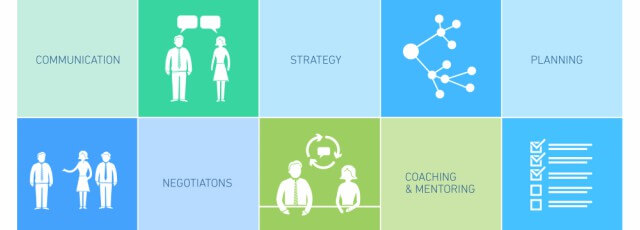Soft skills interview questions and answers
Beyond job knowledge and technical skills, good candidates should demonstrate a set of soft skills, like communication, adaptability and collaboration, to thrive in the workplace. The following interview questions will help you assess these skills during interviews.

Why you should evaluate candidates’ soft skills
Imagine you want to hire an account manager. You have two candidates with degrees in Marketing, knowledge of the CRM software your company uses and two years of relevant work experience. How will you choose who to hire? Soft skills can help you differentiate them.
At the beginning of your hiring process, define which soft skills are important for your open position and build questions around those. Here are some sample soft skills interview questions to help you get started. For more soft skills-based interview questions, check out our library of interview questions by type.
Examples of soft skills interview questions
Adaptability
- What are the biggest challenges you face when starting a new job?
- Tell me about a time when the scope of a project you were working on changed significantly. How did you adjust your work and what did you do to ensure your team stayed motivated?
Collaboration
- Tell me about a time you had to work with a colleague you didn’t get along with. What did you do?
- What would you do if your team rejected all of your ideas?
Communication
- If you’re presenting ideas during a meeting and your audience seems disengaged, what would you do to get their attention?
- How do you calm angry customers?
Decision-making
- Describe a time you made an unpopular decision. How did you handle the feedback? How would you have handled the situation differently?
- What’s the best way to make decisions when working on a group project?
Leadership
- Have you ever fired an employee? If so, why did you have to let them go and how did you inform them?
- How do you motivate your team members during challenging projects? Please give an example from your experience.
Time management
- If you were assigned multiple tasks at the same time, how would you organize yourself to produce quality work under tight deadlines?
- Describe a time you fell behind schedule. What went wrong and what would you do differently next time?
How to evaluate soft skills in interviews
- Assess past work behaviors. It’s tricky to evaluate soft skills the way you evaluate hard skills (e.g. using tests or questions like “What programming languages do you know?”) Behavioral interview questions will help you understand if and how candidates use these skills on the job.
- Create hypothetical scenarios. Test how candidates would handle situations that are likely to occur at work. Consider asking situational questions during interviews or give candidates larger projects that simulate job duties.
- Use a scoring system. Create interview scorecards to measure how satisfying candidates’ answers are. For example, you can use rating scales or a pass/fail system to evaluate candidates’ answers.
- Ask all candidates the same questions. To avoid introducing bias during interviews, make sure you use the same set of questions for all candidates, in the same order. That way, it’s easier to compare their answers and make objective hiring decisions.
Red flags
- They give canned answers. Candidates are likely to come prepared for questions like “Describe your role in a team project” or “How do you manage deadlines?” Add hypothetical scenarios to your interviews that require on-the-spot thinking to identify candidates who give genuine answers.
- They are inconsistent. Use more than one question to determine whether candidates master a specific soft skill. For example, if you’re looking for a good communicator, compare candidates’ answers to questions with their email communication and their performance in role-playing activities.
- They don’t provide specific examples. Generic answers don’t tell you much about how candidates use skills on the job. Ask follow-up questions to get clarifications. Qualified candidates will be able to relate soft skills to real-life experiences.
- They’re not a culture fit. Soft skills are not black and white. Candidates can have the same quality (e.g. leadership) and use it differently (e.g. they’re good decision-makers and give clear instructions to team members or they inspire trust and encourage taking initiative.) Opt for candidates who use their soft skills in ways that match your company culture and business needs.
